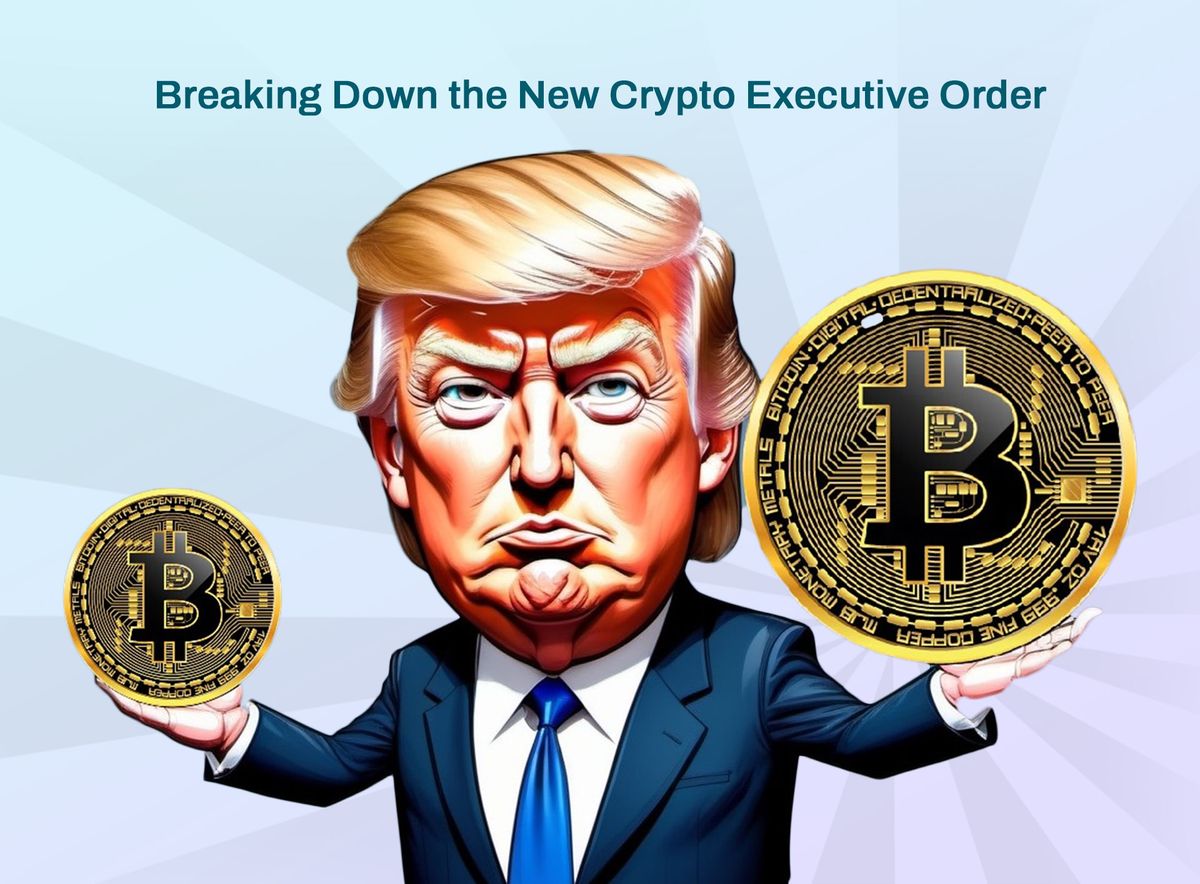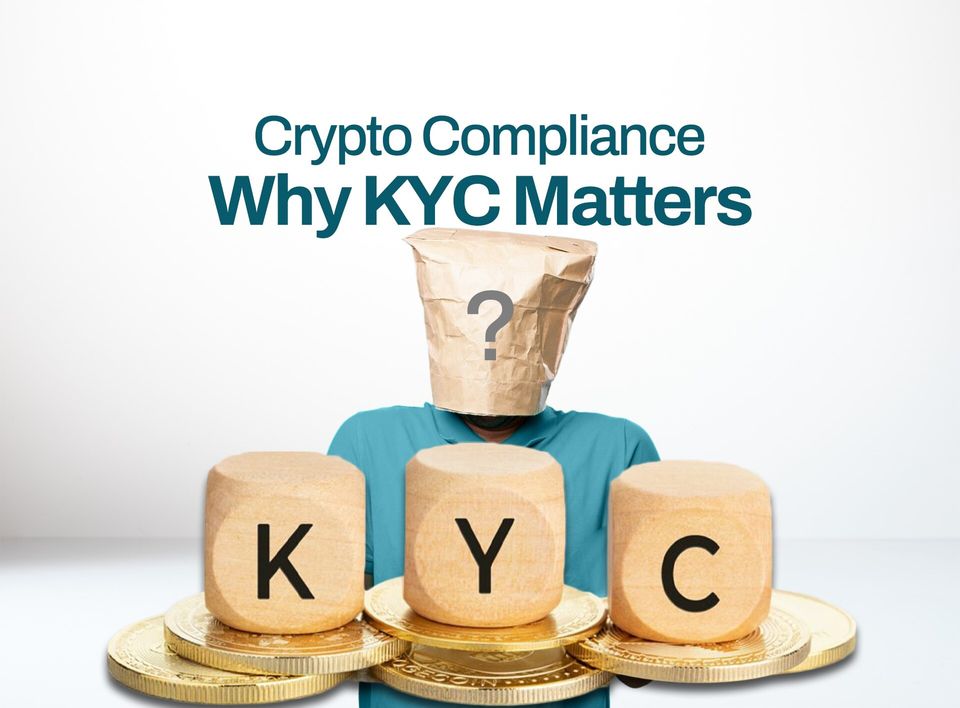Breaking Down the New Crypto Executive Order
Here's a detailed look at the key provisions of the executive order and what they mean for the future of the crypto space.

The cryptocurrency industry just got a major shake-up with the signing of a new executive order by newly sworn-in President Donald Trump aimed at reshaping how the United States approaches digital assets and blockchain technology.
Packed with sweeping policy changes, regulatory mandates, and a clear stance on Central Bank Digital Currencies (CBDCs), this order is poised to redefine the U.S.’s role in the global crypto ecosystem.
Here's a detailed look at the key provisions and what they mean for the future of the crypto space.
A Clear Vision for Digital Assets
At its core, the executive order outlines a bold policy direction: promoting innovation in digital assets while safeguarding the U.S. economy and financial system.
The government is embracing blockchain and digital assets as crucial components of economic growth, but with a strong emphasis on responsibility and individual rights.
The executive order makes one thing clear: the United States wants to lead the way in digital innovation, but not at the expense of its financial sovereignty or the rights of its citizens.
Freedom to Use Public Blockchains
A significant part of the order focuses on protecting citizens’ rights to participate in blockchain networks without fear of censorship or undue restrictions.
It states that individuals and businesses must be allowed to:
- Use open, public blockchain networks for lawful activities.
- Engage in mining, validating, and deploying blockchain technology without interference.
- Hold and manage digital assets in self-custody.
By reinforcing the right to self-custody and decentralised systems, the order is a major win for advocates of cryptocurrency and blockchain technology.
Dollar-Backed Stablecoins Get the Green Light
The order places a special emphasis on dollar-backed stablecoins, describing them as critical tools for maintaining U.S. dollar sovereignty in a rapidly evolving global financial system.
Stablecoins pegged to the U.S. dollar are not just supported—they’re encouraged as a way to strengthen the dollar’s dominance worldwide.
For stablecoin issuers, this could translate into a more favorable regulatory environment.
However, it also suggests that the government will closely monitor and ensure these coins meet high standards for legitimacy and compliance.
Regulatory Clarity is a Priority
The lack of clear regulations has long been a point of contention in the crypto world.
The executive order seeks to address this by calling for:
- Technology-neutral regulations that adapt to emerging innovations.
- Transparent decision-making processes across regulatory bodies.
- Clear boundaries for agency jurisdiction.
For blockchain companies and developers, this could mean fewer gray areas and more consistent rules, which are critical for fostering growth.
CBDCs: A Resounding “No”
One of the most notable aspects of the executive order is its firm rejection of Central Bank Digital Currencies (CBDCs).
The order prohibits the establishment, issuance, or promotion of a CBDC within U.S. borders, citing concerns about:
- Financial Stability: The government warns that CBDCs could destabilize the financial system.
- Privacy: A CBDC, it argues, poses risks to individuals’ financial privacy by potentially enabling surveillance of transactions.
- Sovereignty: By rejecting CBDCs, the U.S. asserts its commitment to financial systems not controlled by central banks.
This move positions the U.S. against countries like China, which has been actively rolling out its digital yuan.
Rewriting the Rules: What’s Being Revoked
The order doesn’t just lay out new policies; it also dismantles existing ones. It revokes Executive Order 14067, signed in 2022, which had a more cautious approach to digital assets.
Additionally, the Department of the Treasury’s 2022 framework for international digital asset engagement is scrapped.
This cleanup perhaps points to a shift in the U.S. government’s tone, from hesitation and over-caution to a more proactive and supportive stance toward digital assets.
The President’s Working Group on Digital Asset Markets
To coordinate the implementation of these policies, the order establishes a new working group.
Composed of top officials, including:
- The Treasury Secretary,
- The Attorney General, and
- Heads of regulatory agencies like the SEC and CFTC,
This group will:
- Review existing digital asset regulations to recommend modifications or repeals.
- Propose a federal framework for regulating digital assets, focusing on market structure, oversight, and consumer protection.
- Evaluate the idea of a national digital asset stockpile, potentially using cryptocurrencies seized during law enforcement activities.
The group will also hold public hearings, allowing experts and industry leaders to weigh in.
What This Means for Crypto Businesses and Users
The executive order seems to be a mix of opportunity and challenge for the crypto industry.
- On one side, it encourages innovation, protects people’s rights, and aims to provide clear rules for how the industry should operate.
For example, blockchain startups might now have a clearer path to launch new projects without fear of legal confusion.
- At the same time, users are guaranteed the right to manage their digital assets, such as keeping their Bitcoin or Ethereum in private wallets, without fear of government interference.
- On the other side, the focus on stricter compliance and regulation could make things harder for businesses that aren't prepared to follow the new rules.
For instance, a crypto exchange operating without strong anti-money laundering measures might face hefty penalties or be shut down.
- Similarly, stablecoin issuers may need to meet higher standards, which could slow down their operations or raise costs.
- For everyday crypto users, the good news is that their right to participate in decentralized networks and hold their own digital assets is protected.
This means you can continue using blockchain for personal transactions or investments without worry. At the same time, the order promises innovation without sacrificing your privacy or financial freedom, ensuring a balance between progress and protection.
How The Market is Reacting to The Trump Crypto Executive Order
In the hours following the announcement of the crypto executive order, Bitcoin and Ethereum have both seen a 0.22% jump in price. Other altcoins like XRP and Solana are in the green as well.
The executive order is a bold declaration that the United States is ready to lead in the digital asset space, but only on its own terms.
For the crypto community, this is a clear signal: adapt, comply, and innovate—or risk being left behind.
The stage is set for the next chapter of the cryptocurrency ecosystem, and all eyes are on how the industry and regulators will rise to the challenge.
Read the full Executive Order
Disclaimer: This article was written to provide guidance and understanding. It is not an exhaustive article and should not be taken as financial advice. Obiex will not be held liable for your investment decisions.




